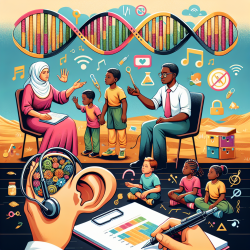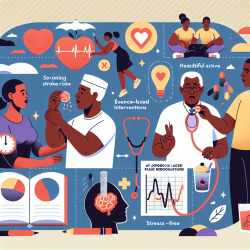As a practitioner dedicated to improving outcomes for children with hearing impairments, understanding the challenges faced by affected individuals is crucial. The research article titled "Knowledge and Challenges Associated With Hearing Impairment in Affected Individuals From Cameroon (Sub-Saharan Africa)" provides valuable insights that can help us make data-driven decisions to enhance our services. This blog will explore key findings from the study and offer actionable strategies for practitioners.
Key Findings from the Research
The study highlighted several challenges faced by individuals with hearing impairment (HI) in Cameroon:
- Perception of HI: Causes of HI were attributed to genetics, environmental factors, and spiritual curses. Misconceptions often led to stigma and discrimination.
- Access to Services: Limited access to education and healthcare services was a significant barrier. The high cost of specialized services and lack of government support exacerbated the issue.
- Social Challenges: Social exclusion and marginalization were common, particularly in rural areas where HI was often misunderstood.
- Expectations from Policymakers: Participants called for increased public awareness, better access to education and healthcare, and genetic counseling to reduce the burden of HI of genetic origin.
Strategies for Practitioners
Based on these findings, here are some strategies that practitioners can implement to improve outcomes for children with HI:
1. Enhance Public Awareness
Education is key to changing perceptions about HI. Conducting awareness campaigns in communities can help demystify HI and reduce stigma. Partner with local organizations to disseminate information about the causes and management of HI.
2. Advocate for Better Access to Services
Work with policymakers to advocate for the creation of more specialized schools and healthcare facilities for individuals with HI. Government subsidies for private institutions can also make these services more affordable for families.
3. Provide Genetic Counseling
Implement genetic counseling services to help families understand the hereditary aspects of HI. This can aid in early diagnosis and management, reducing the long-term impact of HI.
4. Develop Vocational Training Programs
Establish vocational training centers to provide skills and employment opportunities for individuals with HI. This can help them become more independent and improve their quality of life.
5. Foster Social Inclusion
Create support groups and social events that include both individuals with HI and the broader community. This can promote understanding and acceptance, helping to integrate individuals with HI into society.
By implementing these strategies, practitioners can play a crucial role in improving the lives of children with hearing impairments in Cameroon. Data-driven decisions and community engagement are essential for creating lasting change.
To read the original research paper, please follow this link: Knowledge and Challenges Associated With Hearing Impairment in Affected Individuals From Cameroon (Sub-Saharan Africa).










